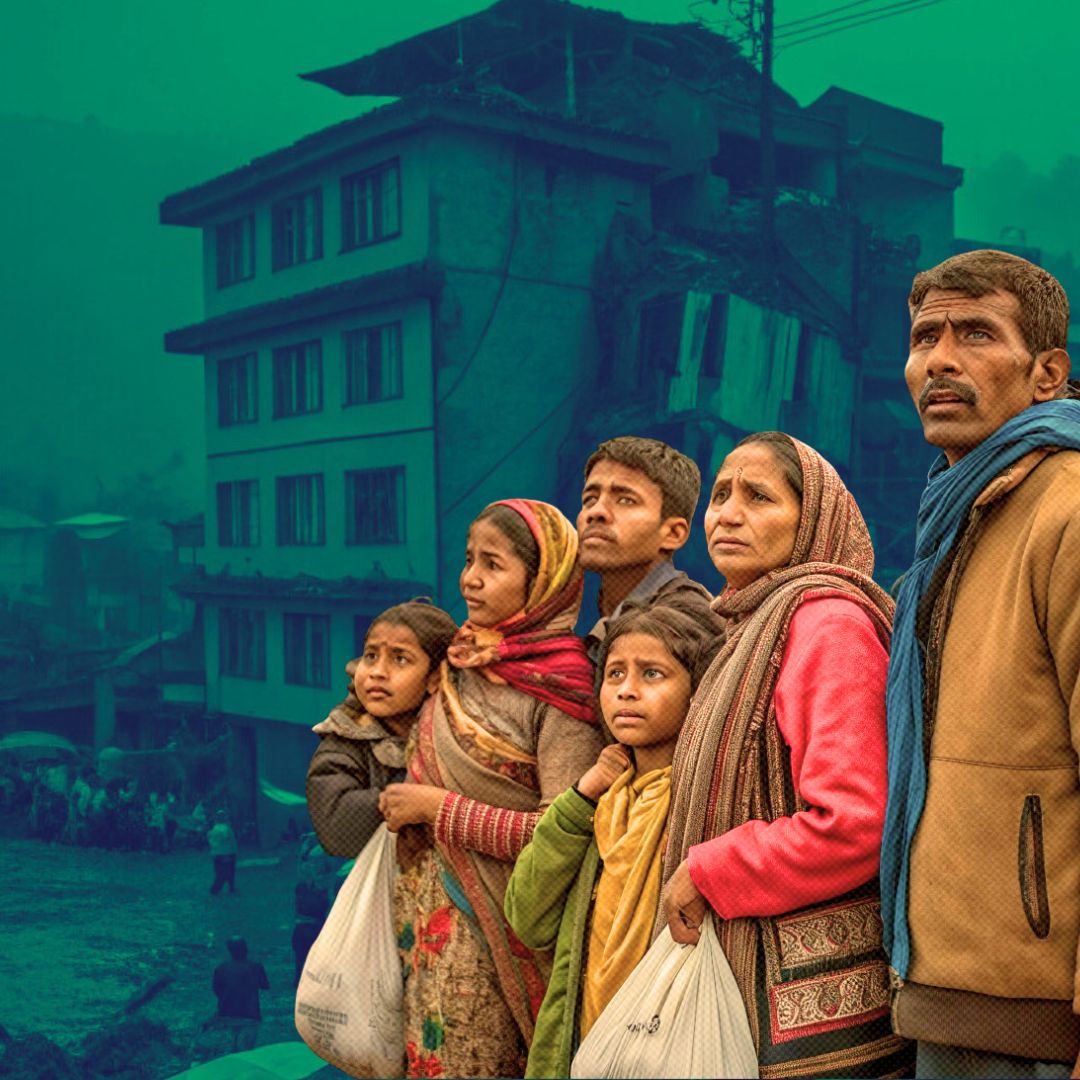A five-storey building collapsed in Mathu Colony, Shimla, on Monday morning, June 30, 2025, after heavy rains and ongoing four-lane road construction reportedly weakened its foundation.
No casualties were reported as the building was evacuated in time, but the incident has sparked fresh concerns about the safety of infrastructure projects in the city’s fragile hills. Authorities are now inspecting neighbouring buildings, and residents are demanding urgent action to prevent further disasters.
Residents’ Quick Thinking and Official Response Prevent Tragedy
The collapse occurred near the Chamyana Super Specialty Hospital, a busy area in Shimla. Residents noticed deep cracks and unsettling noises coming from the building late Sunday night, prompting immediate calls to local authorities.
Acting swiftly, officials evacuated the building, which was subsequently left vacant overnight. At around 6:30 am, the structure gave way, collapsing entirely within seconds a moment captured on video by bystanders and widely shared online.
“Had the building not been evacuated, the consequences could have been catastrophic,” said a senior official from the Shimla Municipal Corporation. Disaster response teams, engineers, and police quickly cordoned off the area, while municipal authorities began a door-to-door survey of adjacent buildings to assess their safety.
Development Pressures, Monsoon Rains, and Mounting Risks
The collapse has reignited debate over the risks of rapid urbanisation and infrastructure expansion in Shimla, particularly in light of the city’s vulnerability to landslides and soil erosion.
Locals allege that the construction of the four-lane road, which involved deep excavation and the use of heavy machinery, destabilised the soil beneath the building. “We warned the authorities about the cracks after the construction started, but our concerns were ignored,” said a resident of Mathu Colony.
Experts point out that the combination of intense monsoon rains and large-scale construction projects can create a ‘perfect storm’ for such disasters. Himachal Pradesh has seen a sharp rise in building collapses and landslides in recent years, with many blaming lax enforcement of building codes and environmental regulations.
Calls for Accountability and Systemic Change
In the aftermath of the collapse, residents and housing associations are demanding a comprehensive safety audit of all structures near major construction sites.
The Himachal Pradesh government has ordered an inquiry into the incident, with Chief Minister Sukhvinder Singh Sukhu stating, “We will hold those responsible accountable and ensure that safety standards are not compromised in the name of development.”
Environmental groups and urban planners have also called for a moratorium on new construction in vulnerable areas until proper risk assessments are completed. Meanwhile, the Meteorological Department has issued further warnings of heavy rainfall, raising fears of additional incidents in the coming days.
The Logical Indian’s Perspective
This incident is a sobering reminder that progress must not outpace safety and environmental stewardship. The timely evacuation in Mathu Colony saved lives, but the underlying issues unchecked development, poor oversight, and disregard for ecological fragility remain unaddressed.
As India’s hill cities continue to grow, it is crucial for policymakers, developers, and citizens to work together to prioritise resilience, transparency, and community well-being. Are we prepared to demand and support the changes needed to make our cities both prosperous and safe?












